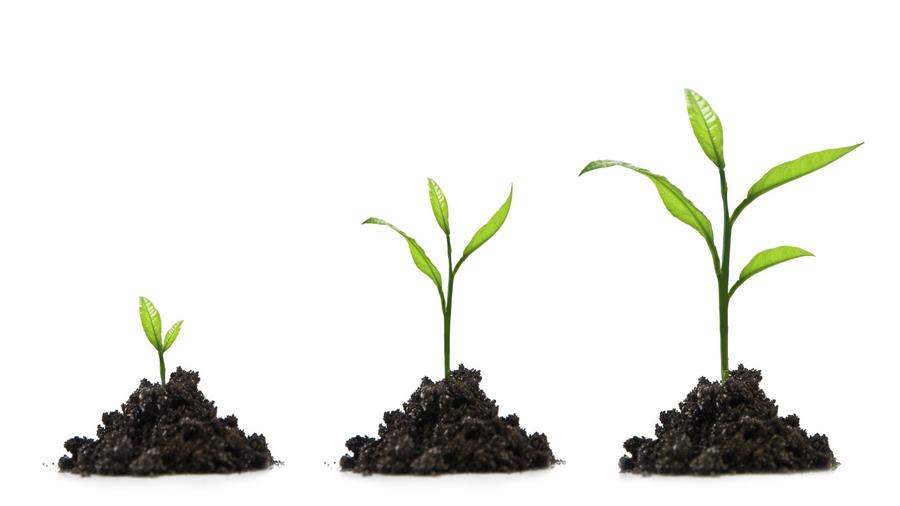
While I love those "Aha! That's genius!" moments (which I am most certainly always open to), it's constantly focusing on making small, incremental improvements which lead to big growth in the long-term. Those small changes may not seem like much at first, but over the long-term they can be completely transformative.
To give you an image of incremental change which leads to big results, today I took my dog Archer into the vet for a check-up. His last visit was a few months ago. I had realized that he was getting bigger, but it was hard for me to really tell just how much, since I would see him everyday. In my eyes he's still my little puppy dog. But, lo and behold, he's gone from weighing about 32 pounds in June to 53 pounds today! My little puppy isn't quite so little! (I suppose that's why it's getting more difficult to lift him up. At least I can be pretty sure that it's not because I'm getting weaker...) Now, what you choose to focus on incremental improvement may or may not be a puppy, I think an analogy can be found there. (While tempting, I'm NOT going to refer to my students as puppies. Scout's honor. Of course, by saying that I'm NOT going to refer to my students as puppies I suppose the argument could be made that I am to some extent. It's sort of like saying, "Don't think about a pink elephant." You're going to do it either way. In fact, as teachers we're told to always frame things in the affirmative, because if you tell someone not to do something they're going to focus on what you told them not to do. Sigh... I hope you like tangents...)
One major way for me to keep track of those small improvements is through my use of presentations in my classes. First of all, I use them so that my teaching is image-rich and it helps students (and myself) to have a very clear idea of where we're at in the lesson, particularly since I use little to no English in the classroom. But, it's not just about helping myself and my students to keep organized and aware of expectations.
One of the major factors of using presentations (for me anyway) is that I can easily move activities around and/or modify them on the fly, or at least soon thereafter. While I love the idea of keeping notes on what went well, what didn't go so well, and what I can improve on in the future, it's difficult to have a good system for that. That's where my presentations come in. When students are working independently or in groups I can easily freeze my projector and then go right on over to my computer and change around my presentation as needed. Oftentimes it's during the moment or not long after that I come up with ideas for improvement. Even if it's something that I don't have time for right now I can easily add a slide and quickly type in those ideas to flesh out further on in the future.
Also, if there are things that didn't go so smoothly, or if I find that there are certain pieces of information that need further review I can fairly quickly make those changes for future classes, if not for the current class. While these changes may be small in the moment, they will cumulatively create more momentum and success in the future. It may not seem dramatic at first, but after years of constant incremental improvement you can make great gains! Just stick with it and focus on the next step!
